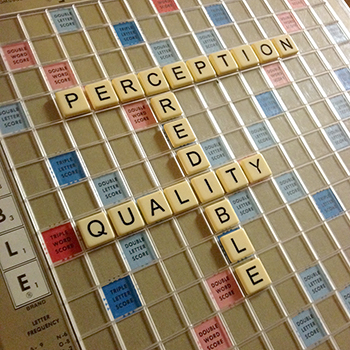 Have you ever read something where you were so distracted by the grammatical errors and misspellings that you lost track of the message? As a result, what was your impression of the author or company?
Have you ever read something where you were so distracted by the grammatical errors and misspellings that you lost track of the message? As a result, what was your impression of the author or company?
Whether you are a business owner, an employee, or a public servant, you have worked very hard to build and maintain a solid reputation. Unfortunately, oftentimes less effort is put into written communications, which results in unintentional and embarrassing errors, causing the reader to wonder if you also lack attention to detail in your work product. The effect could lead to a damaged reputation.
For most of us, our business purpose is unrelated to writing blogs, websites, and press releases. So, why is communication so important? The effectiveness of your communication will influence how others perceive you and your capabilities.
According to Bob Dittmer, Indiana Department of Revenue’s director of public relations, “Writing that contains grammar errors and typos distracts the reader. To keep your reader focused on the message you’re trying to communicate, your writing should be clear, concise, and free of errors and typos. In addition, errors and typos in your writing can damage your credibility by making you seem careless or lacking in knowledge.”
Our friend Laura Wilson from the Indiana Bankers Association also said “A large volume of errors in your communications puts your professionalism in question; if this happens frequently, you run the risk of jeopardizing your credibility.” If your road signs, consumer confidence reports, website, etc. contain mistakes, the reader may question your competency.
Do not rush your work.
I know this is difficult when feeling pressure from an impending deadline. “Take your time; it is more important to do it right than to do it quickly”, said Molly Laut, City of Greenwood communications director. "I often get requests from the media needing information right away. I do not work on their deadline; I get it right first.”
Have someone check your work.
“I am representing Mayor Myers, so he reviews and approves every document I prepare before it goes out. Nothing reaches his desk, however, unless two people have read and edited the content,” said Molly.
If quality of leadership is in doubt, the work you do in your community – ensuring the safety of the drinking water, repairing roads, rehabilitating sewer lines, running your wastewater treatment plant – may also be questioned.
Do you want to make a good impression and protect your hard-earned reputation? Here are some helpful tips to get you started.
Use Spell Check
Not all your spelling errors will be this obvious. Tip: Misspellings can be difficult to spot; be sure to spell check all your work.
Replace Filler Text
Forgetting to replace the filler text can be damaging to your credibility. Tip: Be consistent throughout your organization for usage of placeholder text. You can then search for this text to ensure none remains in the document before finalizing.
Confusing the Reader
This grammar mistake leaves the reader confused. This error will not be caught by spell check. Tip: Try proofreading with the assumption there are mistakes in the communication. I do this often, which forces me to review the work with a more critical eye.
Sending the Wrong Message
This school may be the best school in its community; however, incorrectly spelling the word excellence leaves the readers thinking otherwise. Tip: Write the sign's content on paper and have someone review it for accuracy before broadcasting the message to the public.
Attention to Details
This firm's website reflects a lack of attention to details. How do you want to be perceived? Tip: Set aside some time to review every page of your website to avoid mistakes like this.
Perfecting Punctuation
I wouldn't consider this a horror as the author indicated, but imagine the expense you would incur if the logo for your company or community's vehicle fleet contained an error. Tip: Have someone, other than the author or designer, double check the work before sending it to the printer.
You're or Your, that is the Question
This is one of the most common grammatical mistakes I see. Tip: "You're" is a contraction, so test its proper use by breaking it into two words - "you are". As a possessive pronoun, use "your" to relate to oneself.
Tags

